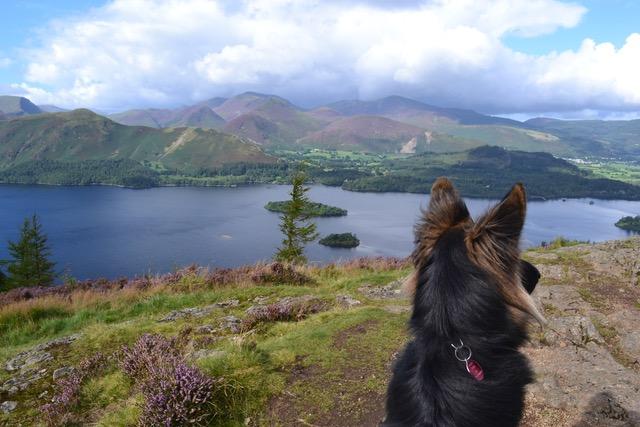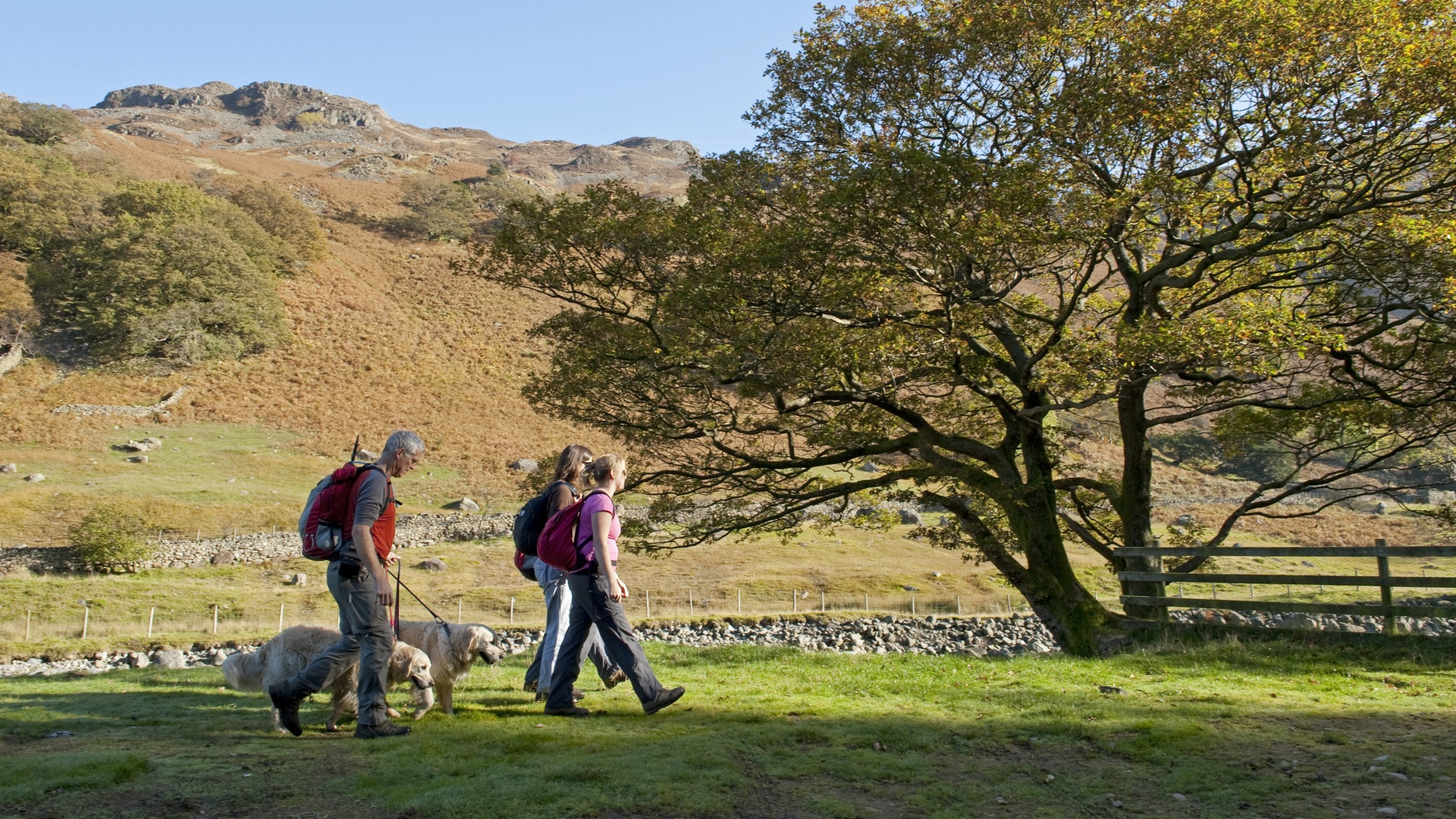What’s happening
- Two towns in Cumbria — Cockermouth and Keswick — have been shortlisted in the “town/city” category of the national DogFriendly Awards, alongside Bury St Edmunds. (cumbriacrack.com)
- The winners are to be announced on 20 November 2025 in London. (cumbriacrack.com)
- The awards recognise dog-friendly places and pet-businesses “that go the extra mile” for the UK’s ~12.5 million dogs and their owners. (cumbriacrack.com)
Why Cockermouth & Keswick are in the running
Cockermouth
- The nomination for Cockermouth was made by its Chamber of Trade. (cumbriacrack.com)
- A Chamber co-chair stated:
“We are chuffed to bits to make the finals … We know this is a brilliant place to live, work and visit – and your dogs can do that too!” (cumbriacrack.com)
- They acknowledge tough competition (including Keswick and the previous year’s winner Bury St Edmunds) but hope the nomination helps raise the town’s profile. (cumbriacrack.com)
Keswick
- The Lake District town of Keswick already has a strong reputation for being dog-friendly: according to travel guides, many pubs, cafés, shops and attractions welcome dogs on leads. (yourdog.co.uk)
- It’s often cited as “the most dog-friendly town” in Cumbria, and by extension one of the most in the UK. (yourdog.co.uk)
What makes a “dog-friendly town”
From the information and local context, key features include:
- Accommodation that allows dogs (hotels, B&Bs, self-catering) and good choices for owners bringing their pets. (yourdog.co.uk)
- Attractions / outdoors opportunities where dogs are welcome: walks, lakes, beaches, forest trails, boat trips that accept dogs. For example, in the Lake District: beaches with no dog restrictions, lake-cruises where dogs are allowed. (hoseasons.co.uk)
- Local businesses (cafés, pubs, shops) that openly welcome dogs, and a visible culture of dogs being accepted rather than tolerated.
- Signposting or guides for dog-owners — e.g., dedicated “Dogs Love Cumbria” guides, mapping dog-friendly walks and stays. (cumbriacrack.com)
- Community/local-business involvement: the local chamber or councils having a visible commitment, using awards/nomination to promote the town to dog-owners.
Why this matters & Implications
- Tourism boost: For a town like Cockermouth or Keswick, being shortlisted/awarded gives a marketing edge in attracting dog-owners (a large segment of visitors). Dogs often drive choice of destination, accommodation and activities.
- Business impact: Local businesses (pet-friendly accommodation, cafés, pubs) can capitalise on the “dog-friendly” branding — they may receive more bookings, longer stays, greater spend from owners.
- Community benefit: A dog-friendly town tends to encourage outdoor activity, walking, use of public space — beneficial for both residents and visitors.
- Competitive advantage: With many destinations vying for pet-friendly tourism, having a “certificate” or national award helps differentiate.
- Planning for owners: For someone travelling with a dog, knowing that your destination is shortlisted (or has a strong dog-friendly reputation) reduces friction (finding dog-friendly accommodation, activities, ensuring dog allowed at cafés).
Key Facts / Notes to Watch
- The finalists were announced recently, meaning the final decision is upcoming (20 Nov 2025).
- The fact that two Cumbrian towns made the final indicates that Cumbria (and particularly the Lake District area) is strongly positioned for dog-friendly tourism.
- It’s not just about natural scenery; the built environment, businesses and service culture matter.
- Dog-friendly does not mean unrestricted: while many resorts accept dogs, owners still need to check local rules (leads, restricted zones, seasonal beach restrictions, livestock proximity). For example note: some Lake District beaches have seasonal dog-restrictions. (hoseasons.co.uk)
- Dog-friendly accommodation often comes with extra cost or conditions (e.g., additional cleaning fee, specified number of dogs, lead requirements).
- Sustainability/impact: Higher visitor numbers with dogs may raise local issues (dog waste, wildlife disturbance, sheep/livestock interactions) so towns have to manage it well to retain “friendly” status.
Visitor Tips (if you’re travelling with your dog)
If you’re considering visiting one of these Cumbrian towns (or choosing between them), here are helpful pointers:
- Book early: Dog-friendly rooms may be limited and in demand.
- Check the amenities: Does the accommodation provide dog bowls, dog beds, secure garden/fenced area (for off-lead play)?
- Walks/Trails: Choose walks appropriate for your dog’s fitness/age – many scenic options in Cumbria (lake-side, forest, coast). For example the guide for Lake District lists beaches, woodland walks. (hoseasons.co.uk)
- Restaurants/pubs: Check that dogs are allowed inside or if there is outdoor seating; dog welcome mats or stickers are good signs.
- Respect local rules: Some areas have lead requirements (especially near livestock), or seasonal restrictions on beaches.
- Pack for your dog: Bring towels, water bowl, treats, waste bags, and possibly a dry/change of clothes for you — muddy paws are common!
- Visit outside peak hours: To avoid crowds and for a more relaxed walk with your dog.
- Explore beyond the town: Towns like Keswick are great bases for exploring dog-friendly countryside, lakes, and coast.
- Here are two detailed case studies and a collection of comments & insights around how the two Cumbrian towns — Keswick and Cockermouth — are competing for the UK’s most dog-friendly destination (in the context of the DogFriendly Awards 2025) and what this means in practice.
Case Study 1: Keswick






The facts & context
- Keswick has a long-standing reputation as a dog-friendly town: according to a travel guide it was “regularly named the ‘Most Dog-Friendly Town’ in Britain in the Kennel Club’s Be Dog Friendly awards.” (sallyscottages.co.uk)
- The town benefits from a superb natural setting (lake, fells, woods) plus a built-town centre with many amenities welcoming dogs: cafés, pubs, pet-friendly walks. (thelakedistrict.org)
- It is one of the finalists for 2025’s DogFriendly Awards in the “Town/City” category, alongside Cockermouth and Bury St Edmunds. (cumbriacrack.com)
What makes Keswick dog-friendly in practice
- Accommodation & holiday cottages: For example, a local website notes many “pet-friendly properties … even your four-legged friend!” and mentions the town’s award status for dogs. (Keswick Cottages)
- Town amenities: The guide mentions plenty of dog-friendly cafés/pubs where dogs are allowed inside, with water bowls etc. (sallyscottages.co.uk)
- Walks & outdoors: With Derwentwater, the fells such as Cat Bells, and forests nearby, dogs have great access to active outdoor experiences. Reddit users reflect that:
“Keswick! … Most pubs, shops and cafes are dog friendly. There is Fitz Park for a stroll if you’re staying somewhere without a garden.” (Reddit)
Challenges / caveats
- Over-popular with dogs: One local news piece noted a call for Keswick to “shake off its dog-friendly reputation” because of concerns about dogs collapsing in cars, high temperatures, and high volumes of dog-owner tourism. (keswickreminder.co.uk)
- For potential residents with dogs: Some commenters on Reddit note that while Keswick is great for visiting with a dog, living there with a dog can have downsides (e.g., many holiday lets, high demand from visitors). (Reddit)
Insight
Keswick is a strong textbook example of a dog-friendly town: the combination of natural landscape, hospitality infrastructure, business culture and official recognition aligns well. Its inclusion as a finalist in 2025 is hardly surprising. However, as with many “holiday and tourism” towns, the influx of dog-owning visitors presents management issues (parking, weather/dog safety, local resident vs visitor tensions).
Case Study 2: Cockermouth






The facts & context
- Cockermouth has been nominated and is a finalist (with Keswick) in the DogFriendly Awards 2025 for the most dog-friendly town/city. The nomination was made by its Chamber of Trade. (cumbriacrack.com)
- From the article: Joe Murray (co-chair of the Chamber of Trade) is quoted:
“We are chuffed to bits to make the finals … We know we are up against some tough competition. Keswick has a great reputation for welcoming dogs … but we hope we have a strong chance.” (cumbriacrack.com)
What makes Cockermouth dog-friendly in practice
- While fewer dedicated mentions than Keswick, the nomination itself indicates a local business community push to attract dog-owner visitors.
- The natural surroundings (river, lakes, hills) around Cockermouth provide dog-walk friendly environments, likely appealing to visitors with dogs (one Reddit user staying there with their dog asked for walk suggestions). (Reddit)
Challenges / caveats
- Less long-documented history (compared to Keswick) of being a top “dog-friendly” brand; so part of the story may be “rising to the occasion”.
- If the infrastructure (accommodation, cafés, shops) is less focused on dogs (compared to a well-known dog-friendly brand like Keswick), then the nomination might reflect potential rather than fully mature dog-friendly ecosystem.
Insight
Cockermouth appears to be a challenger: leveraging its environment and local tourism sector to raise its profile as dog-friendly. The nomination shows recognition of its efforts, and being a finalist may catalyse further investment in dog-friendly amenities. For dog-owners, it may offer a slightly quieter, less “tourist dog-crowded” experience than the more famous competitor (Keswick).
Comments & Broader Perspectives
- “Dog-friendly” is increasingly a differentiator in UK tourism: According to Cumbria Tourism’s “Dogs Love Cumbria” guide: 15% of day-visitors to Cumbria and 17% of staying-visitors had a dog; this rose to 20% for The Lake District specifically. (cumbriacrack.com)
- Owners and reviewers often emphasise not just acceptance of dogs, but ease of bringing dogs (walks, cafés, accommodation), plus visible-signals (dog bowls outside cafés, dog-menus, signage) as what makes a destination truly dog-friendly.
- Business perspective: Towns/institutions increasingly see dogs as part of the “tourist family” rather than a niche. Local businesses benefit from the spend of dog-owners staying longer, eating out, walking etc. For example, in Bury St Edmunds (which also featured in these awards) the local scheme noted:
“Being a dog friendly destination encourages more dog owners to come into our town centre, stay longer and visit more businesses.” (Suffolk News)
- Some tension arises: As dog-friendly status increases, so do management issues: parking, dog waste, high visitor numbers, and local resident experience. The Reddit thread for Keswick includes:
“Fine when they’re on a leash, but Keswick is becoming overrun with them in eating areas and pubs tbh” (Reddit)
Why this competition / designation matters
- Marketing/branding advantage: Being named or shortlisted as “UK’s most dog-friendly town” is a strong promotional asset. For example, the article notes that Cockermouth hopes the nomination “raises the profile” of the town for dog-owning visitors.
- Visitor decision-making: Dog-owners are a growing travel segment; knowing a town is dog-friendly reduces booking friction (will dog be welcomed? Will walks be good?).
- Local economy: More dog-friendly infrastructure (hotels, cafés, cafés that welcome dogs, dog-walks) means more catering to dog-owners — longer stays, higher spend.
- Town planning & experience: The designation encourages towns to invest in physical infrastructure (walks, signage, waste bins, accommodation) and business culture (welcoming dogs).
- Sustainability/responsibility: With more dog-visitors comes responsibility: managing walking routes (livestock, wildlife), controlling dog waste, ensuring dogs are safe. A town with “dog-friendly” status must also be “dog-responsible”.
Key Takeaways & Watch-points
- If you’re planning a dog-friendly visit: Between Keswick and Cockermouth, you’ll likely get strong service and facilities. Keswick offers a “proven brand” whereas Cockermouth may offer slightly quieter experience.
- Check specifics: For any dog-friendly stay, verify accommodation dog policies (extra charge? number of dogs allowed?), café/pub dog rules (dogs allowed inside/outside?), walk difficulty and safety for your dog.
- Manage expectations: “Dog-friendly” doesn’t mean every venue everywhere will accept dogs, or that there are no restrictions. Some parts (especially nature walks) still require leads, care with livestock, weather conditions.
- For towns: Winning the award might spur more dog-dedicated services (dog cafés, grooming, dog-walk companies) and increase the town’s appeal to dog-owners — but also requires management of visitor/dog-impact on local environment.
- For dog-owners who like quieter stays: Watch out for “over-popular dog-friendly” towns which may feel crowded or have high visitor-dog traffic in peak times; visiting in off-peak may improve experience.
